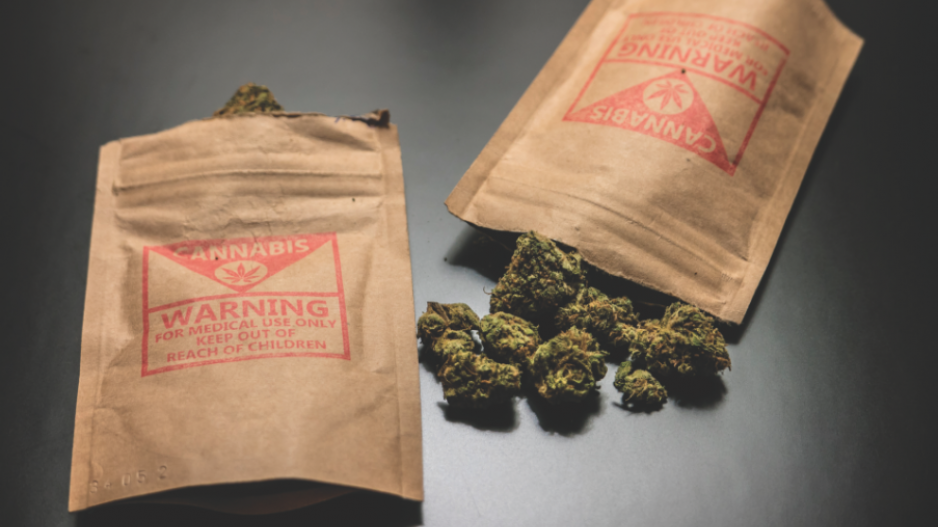The co-owner and operator of a chic and bright dispensary near Granville Island has received the news that federal government plans to legalize the recreational use of marijuana with anticipation, and some concern.
“It’s important that they grasp that there’s a real cottage industry here in B.C., and that the money that flows through the industry here helps sustain the B.C. economy,” said Andrea Dobbs, the 51-year-old entrepreneur, who turned to marijuana three years ago as an alternative to traditional solutions for coping with the symptoms of menopause.
Dobbs is far from alone. Across British Columbia, the prospect of legalization has provoked interest and concern among different players in the medical marijuana sector.
For B.C.’s heavily regulated licensed producers of medical marijuana, it’s a big opportunity. For the more than 150 dispensaries, many of which operate illegally under federal law, it could represent an existential threat.
The federal Liberals are reportedly planning to introduce legislation that would legalize the recreational use of cannabis by July 1, 2018, broadly following the recommendations issued last December by a federal task force headed by former minister of justice Anne McLellan.
In a statement to Business in Vancouver, Minister of Justice and Attorney General Jody Wilson-Raybould declined to confirm government plans to legalize cannabis by July 1, 2018, but said the government “has stated publicly our intention to introduce legislation this spring.”
Industry watchers like Jenna Valleriani, a University of Toronto PhD candidate in addiction studies who researches developments in Canada’s cannabis laws, are looking to the federal task force for signs as to what a future regime will look like.
According to Wilson-
Raybould’s statement, that system should “draw on the good production practices of the current cannabis for medical purposes system,” while using licensing to “encourage a diverse, competitive market that also includes small producers.”
It also spelled out a major role for provincial governments to craft legislation on how recreational marijuana will be distributed and sold in their jurisdictions.
For B.C.’s 10 licensed producers, and the dozens more waiting for accreditation, legalization is a major opportunity.
“We know that we want to be involved in both markets, so that’s something we’re gearing up for now,” said Chris Stone, director of quality assurance at Broken Coast Cannabis Ltd., a mid-sized medical marijuana producer with a facility in Duncan and a staff of 40 employees. “For us, legalization means that there will definitely be an increase in the number of customers.”
The head of a licensed producer of medical marijuana based in Kelowna said his company will expand its workforce to more than 100 from its current 14 if it gets approval to operate in a future recreational cannabis system.
“We’re definitely looking to supply the recreational market,” said John Miller, CEO of THC Bio
Med, “and we know that we’re going to have to scale up to do it.”
Miller also wants dispensaries, which currently source their marijuana either illegally or from patients, to come into one supply chain where licensed producers grow and distribute cannabis.
What will happen to B.C.’s more than 150 dispensaries remains a mystery.
“This is what makes B.C. such an interesting case and an outlier within Canada,” said Valleriani. “B.C. really is the place where the dispensary model has the highest chance of survival in its current form.”
If they are to survive, she said, transforming the system of illicit growers into a transparent, compliant supply chain will pose a major challenge.
The dispensaries have been joined by powerful new entries like the Alliance of Beverage Licensees and the BC Government Employees and Service Union (BCGEU), who want a system modelled on the liquor distribution supply chain.
“We’ve been selling controlled substances responsibly for decades,” said BCGEU president Stephanie Smith.
The BCGEU’s 73,000 public-sector members include BC Liquor Distribution Branch employees. Smith said that setting up a new administrative system for recreational cannabis would be costly and time-consuming, and that the BCGEU is willing to provide “room for all sizes of growers” and distribution through its distribution centres.
What that system will look like ultimately depends on the decisions of the provincial government.
While both the provincial minister responsible for the marijuana file, Solicitor General Mike Morris, and Premier Christy Clark have met with Smith to discuss her organization’s proposal, the government has not yet held public consultations or met with representatives of the province’s medical marijuana dispensaries. Moreover, besides the existence of a cross-ministry working group of deputy ministers, there’s been little indication of what B.C. plans to do.
The province, for its part, says that it’s waiting on federal legislation before taking action.
“We’re going to see what the federal legislation looks like before we take that next step forward,” Morris said in a scrum last week.
At press time, the minister was not available for further comment.
“I don’t believe the current government has done a lot of work on this file to date,” said Mike Farnworth, the NDP’s lead on marijuana issues. “They haven’t talked about it with the legislature, and they haven’t consulted with local government.”
Farnworth, who heads up the marijuana file with his colleague Carole James, favours policies like a minimum age of 19 and a ban on certain edibles like cannabis-infused gummy bears.
“Whatever model is adopted, I think it has to be tightly regulated,” he said. “It’s easier to loosen regulations than tighten them up.”
As for Dobbs, she said she welcomed the task force’s recommendations and wants the dispensaries to be incorporated into a well-regulated system. Moreover, she doesn’t want the independent marijuana businesses to be priced out of the market by the costs of meeting a heavy regulatory burden.
“I’m really concerned that it will become big box too fast and leave out all the cottage industry,” she said. “There’s room for everyone.”
[email protected]



